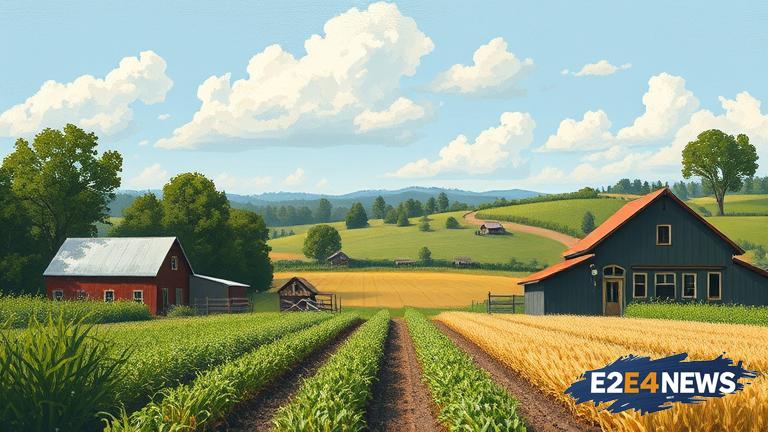The world of agriculture is undergoing a significant transformation with the advent of modern farming techniques. These innovative methods are designed to increase efficiency, productivity, and sustainability, while also reducing the environmental impact of farming. One of the key aspects of modern farming is the use of technology, such as precision agriculture, drones, and satellite imaging, to monitor and manage crops. This allows farmers to make data-driven decisions, reducing waste and optimizing yields. Additionally, modern farming often incorporates sustainable practices, such as organic farming, permaculture, and regenerative agriculture, which prioritize soil health, biodiversity, and ecosystem services. These approaches not only improve the environment but also produce healthier and more nutritious food. Furthermore, modern farming is also focused on reducing water waste, using techniques such as drip irrigation and mulching, which help to conserve this precious resource. The use of renewable energy sources, such as solar and wind power, is also becoming increasingly popular in modern farming, reducing reliance on fossil fuels and lowering carbon emissions. Moreover, modern farming often involves the use of advanced machinery and equipment, such as autonomous tractors and robotic harvesters, which can perform tasks with greater precision and speed. This not only improves efficiency but also reduces labor costs and improves worker safety. The benefits of modern farming are numerous, including increased crop yields, improved food security, and enhanced environmental sustainability. However, there are also challenges associated with modern farming, such as the high upfront costs of investing in new technology and equipment, as well as the need for specialized training and expertise. Despite these challenges, many countries are embracing modern farming techniques, recognizing the potential for improved agricultural productivity and sustainability. In fact, some countries, such as the Netherlands and Israel, have become leaders in modern farming, using innovative techniques to produce high-value crops in challenging environmental conditions. The adoption of modern farming techniques is also being driven by government policies and initiatives, which provide support and incentives for farmers to adopt sustainable and innovative practices. Overall, the rise of modern farming represents a significant shift in the way we produce food, with the potential to improve the environment, enhance food security, and promote sustainable development. As the global population continues to grow, the importance of modern farming will only continue to increase, driving innovation and investment in this critical sector. The future of agriculture is likely to be shaped by the adoption of modern farming techniques, which will play a crucial role in ensuring food security, reducing environmental impact, and promoting sustainable development. In conclusion, modern farming is a rapidly evolving field, driven by technological innovation, sustainable practices, and government support, with the potential to transform the agricultural landscape and improve the lives of millions of people around the world.
